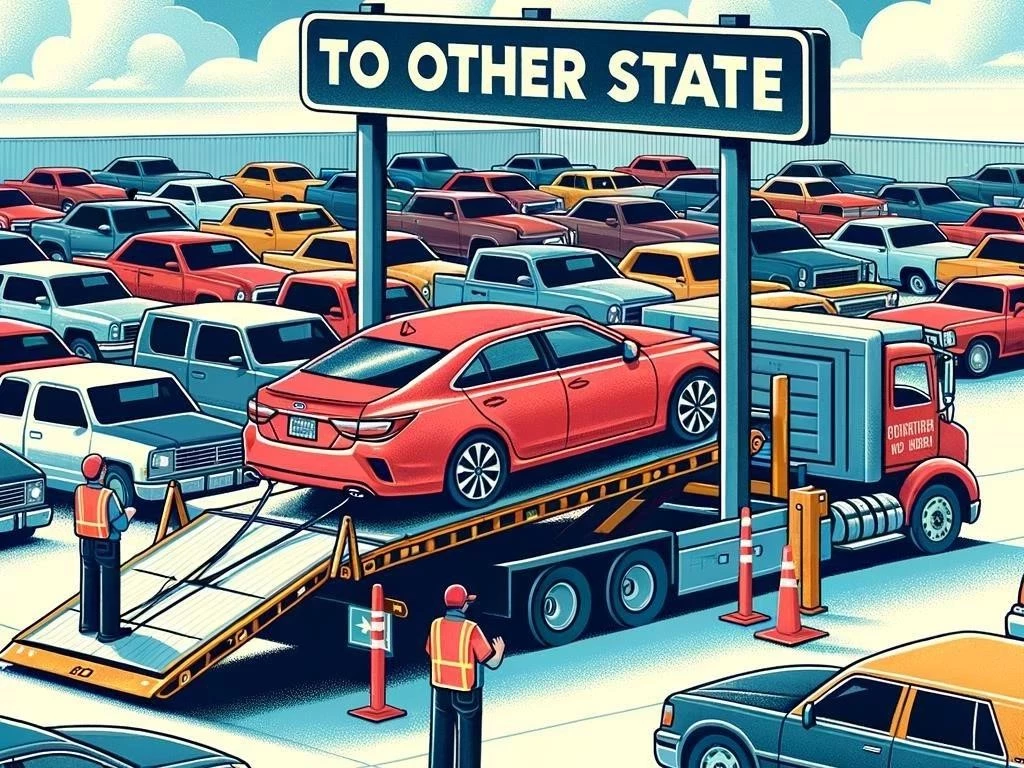Do Dealerships Ship Cars to Other States?
Many auto dealerships offer interstate car transport services‚ facilitating vehicle delivery across state lines․ Shipping cars may involve various logistics‚ ensuring compliance with state regulations and customer preferences․
Understanding Dealerships and Car Shipping
Dealerships play a crucial role in the car buying process‚ providing consumers with access to various vehicle options․ Many dealerships offer car shipping services‚ which can be particularly beneficial for customers looking to purchase vehicles from out of state․ These automotive transportation services allow for convenient cross-state delivery‚ streamlining the process of acquiring a vehicle without needing to travel long distances․ When engaging in online car sales‚ customers should inquire about the dealership’s car dealership policies regarding shipping cars to ensure a smooth transaction․
Interstate car transport is often managed by vehicle shipping companies‚ which specialize in navigating the complexities of long-distance shipping․ Customers must consider factors such as car transport fees and delivery options when selecting a shipping service․ Understanding state regulations is also essential‚ as they may impact vehicle delivery and registration․ Ultimately‚ a well-informed buyer can confidently navigate the intricacies of automotive logistics while securing their desired vehicle․
Delivery Options for Out-of-State Purchases
When considering an out-of-state purchase‚ understanding the available delivery options is vital for a seamless experience․ Many dealerships provide various transportation services to accommodate customers‚ ensuring their new vehicles arrive safely․ One common option is door-to-door delivery‚ where the dealership arranges for the car to be delivered directly to the buyer’s location․ This option offers convenience but may come with higher car transport fees․
Alternatively‚ dealerships may offer terminal-to-terminal shipping‚ where the buyer picks up the vehicle from a designated shipping terminal․ This option can be more cost-effective‚ but it may require additional planning and travel for the buyer․ It’s essential to communicate with the dealership about specific delivery options and timelines to ensure expectations align․ Moreover‚ some dealerships collaborate with vehicle shipping companies that provide tracking services to keep customers informed about their car’s journey․ Understanding these choices will help buyers make informed decisions while navigating the complexities of interstate car transport․
Key Considerations: Car Dealership Policies and State Regulations
When exploring the possibility of dealerships shipping cars to other states‚ it is crucial to understand both dealership policies and state regulations․ Each dealership can have unique car dealership policies concerning interstate car transport‚ including how they handle paperwork and compliance with local laws․ Buyers should inquire about the dealership’s specific procedures for out-of-state purchases‚ including any additional fees that may apply․
State regulations can significantly impact the shipping process‚ as laws vary from one state to another․ For instance‚ some states may require specific documentation for vehicle delivery or impose taxes on out-of-state purchases․ Understanding these regulations is essential for a smooth transaction and to avoid potential legal issues․ Additionally‚ consumers should ensure that the vehicle shipping companies used are compliant with both state and federal guidelines‚ ensuring a responsible and legal transport process․ By considering these factors‚ buyers can navigate the complexities of automotive logistics while making informed decisions about their out-of-state vehicle purchases․
Choosing the Right Vehicle Shipping Company
Selecting the right vehicle shipping company is a critical step for those looking to buy from dealerships that ship cars to other states․ Consumers should conduct thorough research to identify reliable vehicle shipping companies with a proven track record in interstate car transport․ Start by checking online reviews and testimonials to gauge customer satisfaction and service quality․ It’s essential to inquire about the company’s experience in handling long-distance shipping‚ as expertise in automotive logistics can significantly impact the vehicle delivery process․
Additionally‚ consider factors such as insurance coverage‚ which protects your investment during transportation․ Ensure that the company complies with all state regulations and has the necessary licenses for interstate shipping․ Transparency regarding car transport fees is also crucial; obtain detailed quotes to avoid unexpected charges․ Furthermore‚ evaluate the company’s delivery options‚ including estimated timelines and tracking services․ By carefully assessing these criteria‚ buyers can select a trustworthy vehicle shipping partner that meets their needs while ensuring a smooth car buying experience․
The Future of Automotive Logistics and Online Car Sales
The landscape of automotive logistics is rapidly evolving‚ particularly with the rise of online car sales․ As consumers increasingly opt for digital platforms to purchase vehicles‚ dealerships are adapting their operations to meet demand for interstate car transport services․ This shift emphasizes the need for efficient vehicle delivery solutions‚ enabling buyers to acquire cars from remote locations without hassle․ Enhanced technology‚ such as real-time tracking and automated logistics systems‚ is streamlining shipping processes‚ making long-distance purchasing more accessible;
Moreover‚ advancements in automotive logistics are leading to innovative shipping methods that further reduce delivery times and costs․ Dealerships are now partnering with specialized vehicle shipping companies to ensure compliance with state regulations while providing seamless service․ As more consumers embrace the convenience of out-of-state purchases‚ the importance of reliable transportation services will continue to grow․ Ultimately‚ the future of car buying will likely feature an even stronger emphasis on efficient logistics‚ fostering a market where interstate transactions are commonplace and hassle-free․








